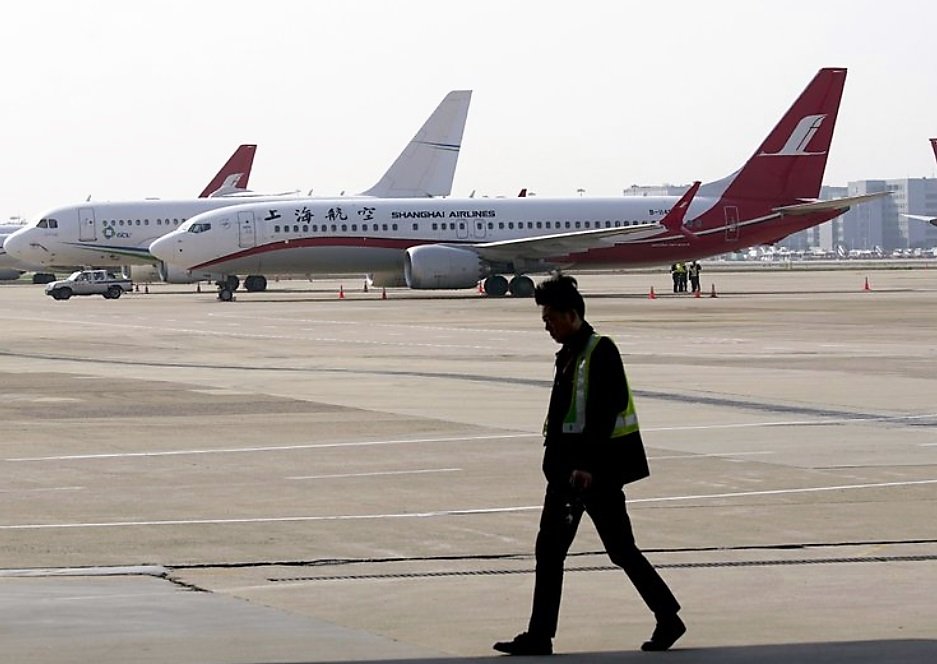After two of the Boeing 737 MAX 8 jets crashed within 6 months, at least 36 countries and nearly 30 airlines have suspended operation of the fuel-efficient aircraft in the span of 2 days.
The EU aviation authority banned flight operations of Boeing 737 Max jets, a huge blow to Boeing’s efforts to maintain the confidence of governments and airlines.
The U.S. and Canada are still allowing the aircraft to operate until more information is available from the Federal Aviation Administration.
A growing number in congress, including Sens. Ted Cruz (R-Texas), Mitt Romney (R-Utah), Elizabeth Warren (D-Mass.) and Richard Blumenthal (D-Conn.), have called for the jet to be grounded in the U.S. pending an investigation.
Consumer Reports asked airlines, including American Airlines and Southwest, and the FAA in a statement to temporarily ground Boeing 737 Max 8 jets until a safety investigation is finished.
There are 59 operators of the MAX series worldwide, per the FAA.
U.S. airlines Southwest, American Airlines and United Airlines are still running their MAX series jets.
American tweeted it’s waiting on the outcomes of the National Transportation Safety Board investigation.
Countries that have grounded the jet:
EU (28 countries)
- Australia
- China
- Indonesia
- Malaysia
- Singapore
- Turkey
Airlines that have grounded its jets:
- China Southern Airlines
- Air China
- Shanghai Airlines
- Hainan Airlines
- Xiamen Airlines
- Lion Air\
- GOL Airlines
- Shandong Airlines
- Aerolineas Argentinas
- China Eastern Airlines
- Ethiopian Airlines
- Lucky Air
- Cayman Airways
- Fuzhou Airlines
- Kunming Airlines
- Okay Airways
- Eastar Jet
- Royal Air Maroc
- 9 Air
- Comair
- MIAT Mongolian Airlines
- Garuda Indonesia
- Norwegian Air Shuttle
- Turkish Airlines
- Icelandair
- Aeromexico
- Jet Airways
- LOT Polish Airlines
- FlyDubai
The crashes of two brand new Boeing 737 MAX 8 aircraft during the past 6 months, including the latest on Sunday outside Addis Ababa, Ethiopia, that killed all 157 aboard, present a major challenge for Boeing.
The Chicago-based company has bet much of its future on the success of the Boeing 737 MAX series, which are the newest versions of the best-selling jet of all time.
However, the stakes for Boeing couldn’t be higher, as the loss of two brand new aircraft in 6 months has no precedent in modern aviation history and threatens one of the company’s main profit engines.
The aircraft is aimed at countering competition from Airbus for the lucrative single-aisle jet market.
According to Boeing, the company has already notched more than 4,700 orders, keeping a bustling production line open in Renton, Washington, along with part manufacturers located elsewhere.
The plane offers airlines a more efficient and longer-range option compared to older generations of the 737 and the aging Boeing 757.
Its engines are quieter than older 737s, with raked nacelles giving them a futuristic look.
Its jagged wingtips point outwards in two directions, an effort to minimize its wake and maximize efficiency.
The investigation into the Lion Air crash near Jakarta, Indonesia, on Oct. 29 has centered on an angle-of-attack sensor that juts out from the plane’s fuselage near the nose.
A preliminary investigation shows the sensor may have provided erroneous readings to the plane’s fight control system.
This led the system to sense the plane’s nose was tilted up at a high angle and that a potentially disastrous flight condition known as a stall — in which a plane loses its ability to generate lift — was imminent.
This then led a flight computer system known as MCAS to push the plane’s nose forward to avert the stall.
On Monday evening, the FAA issued a notification to all operators of the 737 MAX series, stating in part: “… This investigation has just begun and to date we have not been provided data to draw any conclusions or take any actions.”
Drawing from the Lion Air crash, the agency is working with Boeing to roll out a software fix to the MCAS system by April.
The plane’s altitude fluctuated wildly as the pilots appear to have fought with the MCAS system, before the pilots lost control and the plane plunged into the ocean, according to preliminary findings.
A final cause of the crash has not yet been determined.
However, in the wake of the crash, Boeing issued guidance to airlines about how to disable the MCAS system.
The MCAS system could be disabled using a checklist already in the cockpit, meant for use when encountering specific control problems.
In developing the 737 MAX 8, Boeing worked to minimize training costs for airlines to operate the new version of the 737, since so many airlines already operate other versions of the same plane.
Pilots did not receive special training on the MCAS in particular.
President Trump weighed in today, bashing airplane technology.
